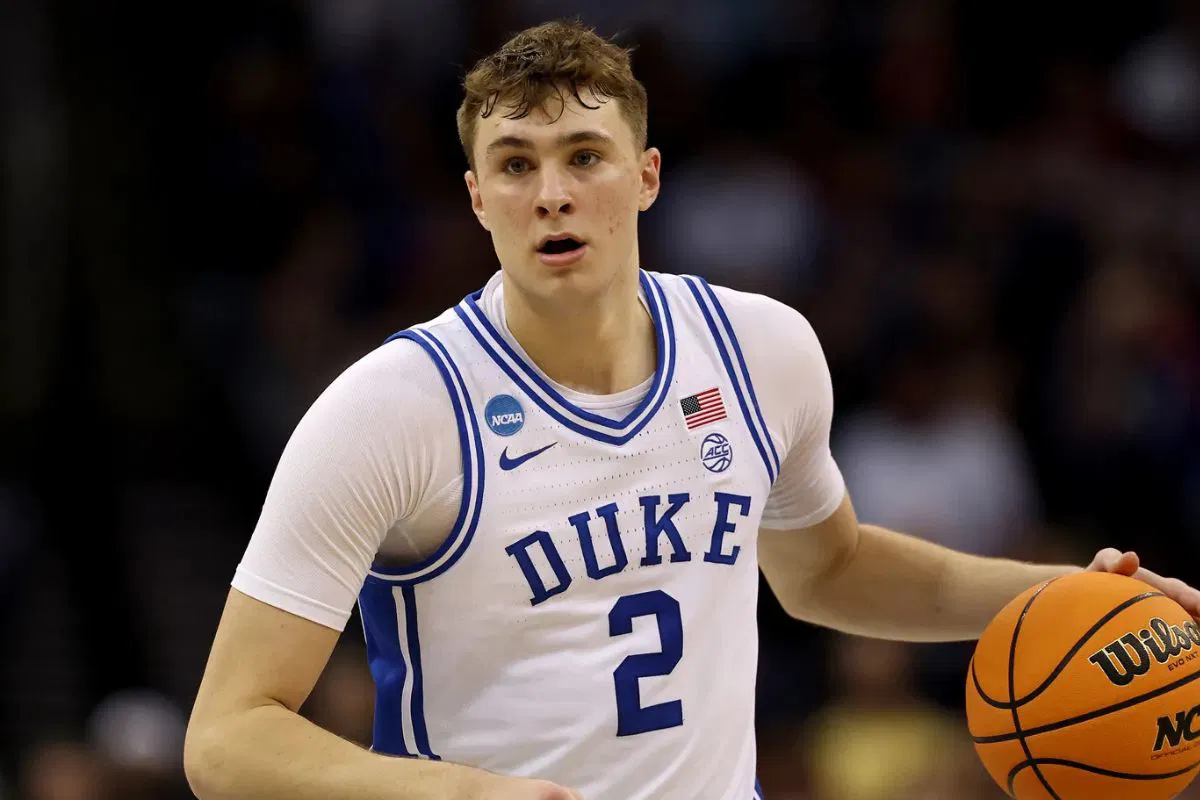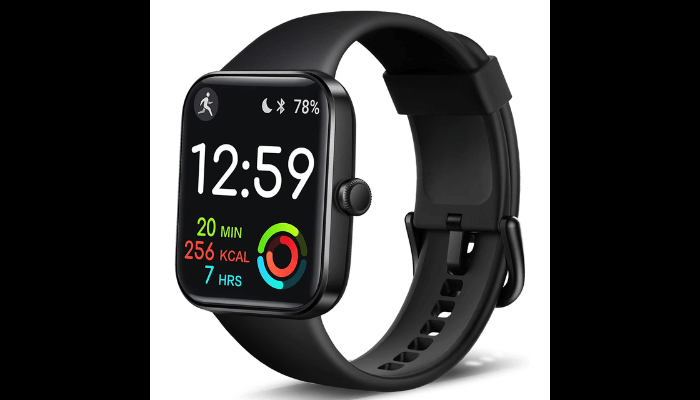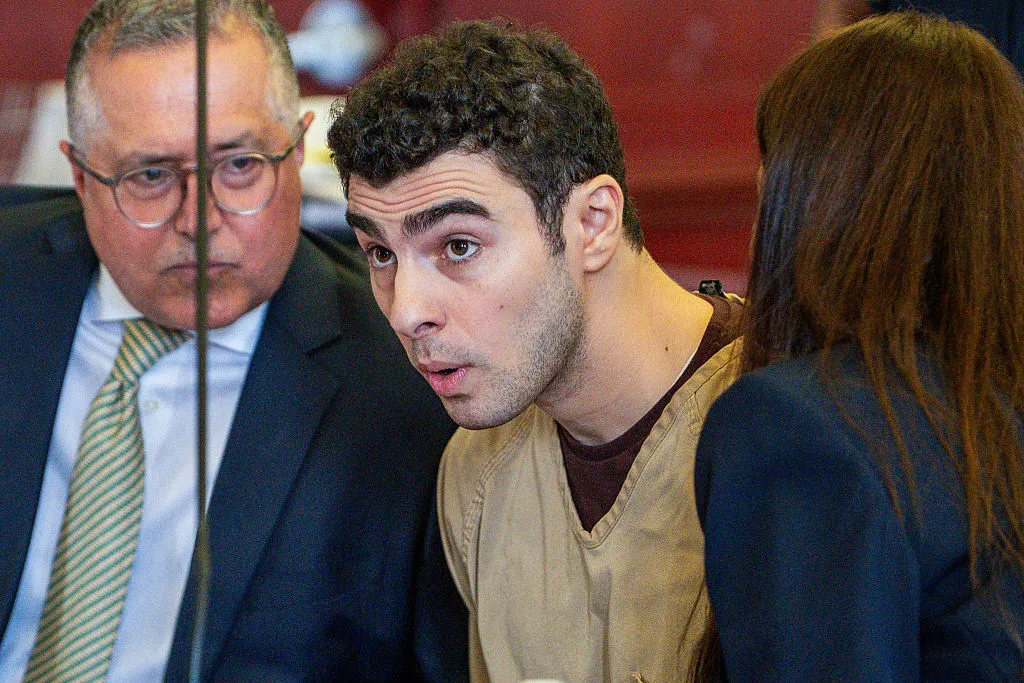
The Dallas Mavericks have had a wild year. Just a season ago, they were coming off an NBA Finals appearance with Luka Dončić entering his prime. But a series of dramatic moves and misfortune reshaped the team: Nico Harrison traded Dončić for Anthony Davis in February, Kyrie Irving tore his ACL weeks later, and Dallas leaped from 11th to No. 1 in the draft lottery, selecting Cooper Flagg. Despite the chaos, the Mavericks sit 16th in the future NBA rankings for 2025, a huge drop from last year’s 5th. While there is hype around Flagg entering his rookie season with the Mavs, where did it go wrong for them?
ESPN’s Tim MacMohan, along with Tim Bontemps, sat down with Brian Windhorst in The Hoops Collective to discuss exactly that. Tim MacMohan called him “the most hyped American prospect since LeBron.” How true is that? Well, in terms of size, Flagg stands at 6 feet, 7¾-inch. Flagg’s combination of size and versatility has scouts raving, so much so that he has already been proclaimed to have everything needed to succeed in the NBA as a true two-way superstar. But hype alone doesn’t win in Dallas.
The Mavericks are trying to integrate a top-tier rookie into a roster stacked with veterans whose primes are winding down. As MacMohan notes, building around Flagg will be “challenging because of all the draft picks you gave up to successfully build around Luka.”
ADVERTISEMENT
Article continues below this ad
The Mavericks traded away a string of future first-round picks to strengthen the present roster. Tim breaks it down: the 2027 Charlotte pick (top two protected), a 2028 pick swap with Oklahoma City, the 2029 Rockets pick from the Kyrie deal, and another swap in 2030 to San Antonio.
That kind of restricted draft flexibility is bound to be a major problem for the Mavericks and their aim to build a contending team around Flagg. Even if Flagg reaches his potential immediately, Dallas has limited options to supplement him with young stars for the time being. This becomes a problem considering the timelines Dallas’ other stars are on, namely AD and Irving.
ADVERTISEMENT
Article continues below this ad
Even with Flagg’s arrival, the Mavericks face an aging core. Tim emphasizes the reality: “the future Hall of Famers you have in place now are going to be in their late 30s, Anthony Davis, Kyrie Irving, Klay Thompson.”
Potential injuries are undoubtedly a major concern for the Mavs, and there is enough historical evidence to prove the existence of that problem when it comes to the players mentioned above. However, for Dallas, the real problem might be integrating a rookie into this mix is the real challenge. The team could see Flagg excel individually but still fail to climb the standings if the veterans can’t sustain high-level performance.
Brian Windhorst adds historical context, comparing Dallas to San Antonio. The Spurs often drafted well, got lucky with rookies, yet still plateaued. Brian says, “San Antonio were number 10 last year…they get the rookie of the year…then a top three pick…and they’re still 10.” The lesson? Draft talent, even elite talent, doesn’t automatically translate into immediate team success. Flagg could be spectacular, but the Mavericks’ structural issues might cap their upside.
Read Top Stories First From EssentiallySports
Click here and check box next to EssentiallySports
A recurring theme in ESPN’s analysis is how the Mavericks’ lottery luck masked deeper problems. Jumping from 11th to 1st in the draft to select Flagg undoubtedly allowed them to build with one eye on the future once again. However, that does not mean they are now immediately built for success. Tim warns, “even if Cooper’s going to be awesome…they still have the inherent problem that they have an old roster that isn’t going the right direction on the age curve.”
Brian summarized the situation, “We’re either going to watch Cooper Flagg for the next six months and go, ‘Holy Moses, he’s the real deal,’ and regardless of what else is on the roster…they’re going to be a top 10 team. Or he looks good but not great, and they’re headed the other direction.” The Mavericks’ trajectory may hinge entirely on Flagg’s rookie year, which should simply not be the case as despite the hype and potential, we are still talking about a rookie.
Tim Bontemps adds layers to this: player health, integration, and surrounding talent all remain looming questions. “Let’s see how Kyrie comes back from his torn ACL. Let’s see where Anthony Davis is in a year…Derrick Lively, Klay Thompson…this is a team with a lot of questions around them.” The takeaway: even if Flagg wins Rookie of the Year, the Mavericks are balancing on a knife-edge.
A roster built for Luka, now handed to Flagg
The Mavericks’ direction changed overnight in February 2025. Trading Luka Dončić to the Lakers for Anthony Davis was a franchise reset. Only a season ago, Dallas had assembled veterans like Kyrie Irving and Klay Thompson to slot alongside Luka’s ball-dominant style. By the time May rolled around and Cooper Flagg arrived as the No. 1 pick, that vision no longer existed. The problem is easy to trace.
The Mavericks for years were trying to compete in the present, and made multiple major moves may have restricted their draft flexibility. Now, the likes of Irving, AD, and Thompson are no longer the same players, and may even have reduced trade value considering even the situation where the Mavs try to move them for pieces that better align with Flagg.
Those same veterans are now being asked to adjust to a rookie centerpiece rather than a proven MVP candidate in the form of the Slovenian international, and that shift comes with uncertainty, especially because these are not players who have shown a consistent ability to be available throughout campaigns, in recent years. As ESPN’s Tim MacMahon noted, there are real questions about whether aging stars will accept reduced or altered roles without Luka running the show.
The Mavericks must now decide: immediately focus on Flagg’s strengths and make him the centerpiece by adding pieces around him that can better complement his strengths and timelines, or let veterans continue to dominate usage and risk slowing his development. As the insiders pointed out, the Mavs have little option to wait for the time being. If Flagg represents immediate upgrade, the Mavs are actually built to compete in the coming season, but only if their injury-prone future HOFers remain fit.
ADVERTISEMENT
Article continues below this ad
Conversely, if Flagg needs time to settle down and emerge as the cornerstone he has been touted to, much will depend on these veterans, and the Mavs will simply need to look for ways to create a team that betters fits Cooper Flagg’s timeline, at least after the upcoming season.
If the vets adapt, the transition could work. If they don’t, Dallas risks wasting the very lottery luck that brought them Flagg in the first place.



